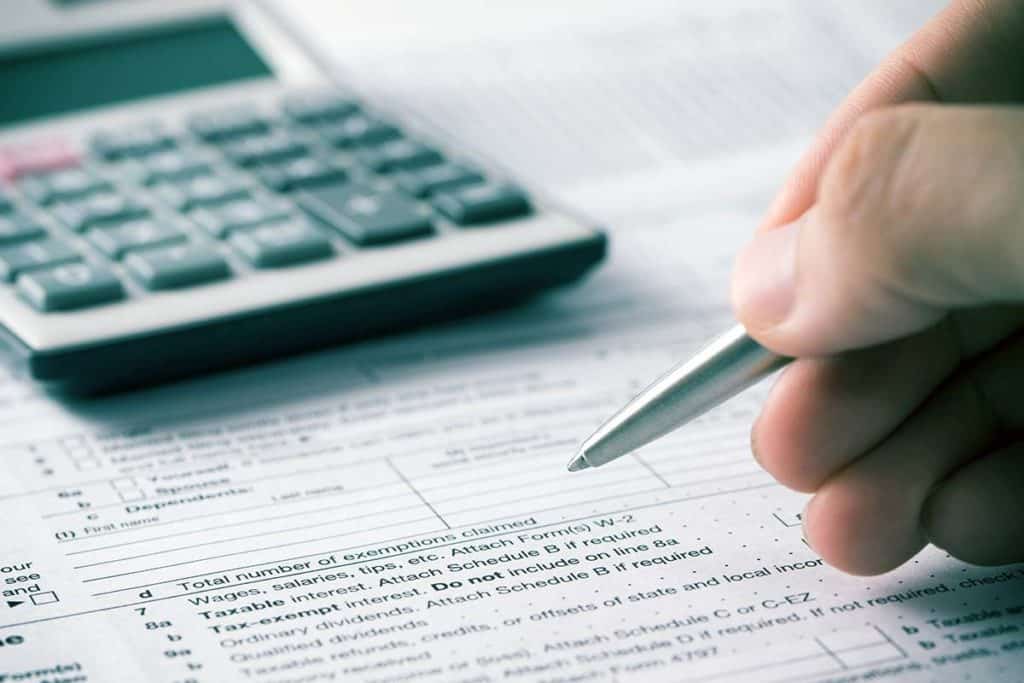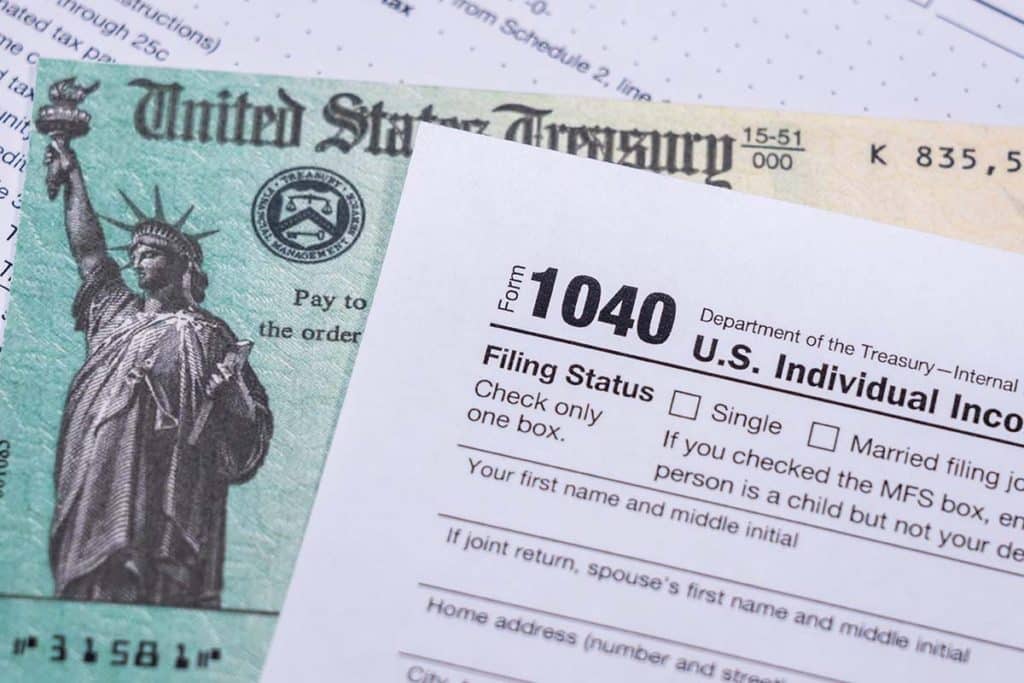As a new small business owner or freelancer, you might be thinking that it’s more affordable to file taxes yourself. I mean, how hard could it be? Why spend on a CPA if you’re not even sure how much income you’ll make anyway. I get it.
Hiring an accountant might seem like an unnecessary expense, especially when you’re working on a tight budget. But let’s set the record straight. Hiring an accountant will ensure that you’re covered come tax season, and can actually help you feel more confident in your business finances. Let’s go through the facts and figures and help clarify if hiring an accountant is right for you.
How much does it cost to file taxes?
The cost of hiring a CPA depends on a number of factors, including the forms being filed, their level of experience, and the state in which you’re filing. Some CPAs bill hourly, per form, or according to the service being provided. When looking at the cost of filing taxes only, it usually won’t break the bank. And, hiring an accountant to prepare and file your business taxes can be counted as a business expense, and therefore count towards your tax deductions.
Tax preparation costs
According to the National Society of Accountants (NSA) in their recent survey report, the average hourly rate of CPAs for filing federal/state tax returns was $180, and $174 for other tax services. Of course, the number of hours billed by a CPA depends on the service, and is impacted by the level of organization of your files.
The average hourly fees for client services
| Service | Cost |
|---|---|
| Full payroll services | $100 |
| Quickbooks or bookkeeping advisory services | $109 |
| Financial services | $154 |
| Tax services | $174 |
| Federal/State tax return | $180 |
As mentioned above, the rates charged by accountants vary. Some CPAs may charge a fixed fee according to service, while others charge hourly or per form. Here’s a breakdown of how CPAs bill on average. If you prefer a particular billing method, keep that in mind when researching CPAs in your area, and make sure to ask about billing methods before hiring a CPA.
How CPAs bill for services on average
Over the last year, the most common billing method among CPAs when preparing taxes was per form, enabling small businesses working with a tight budget to spend more selectively, and only where necessary.
| Service | Fixed Fee | Hourly | Fixed & Hourly | Per Form | Other |
|---|---|---|---|---|---|
| Tax Prep | 26.8% | 7.0% | 23.6% | 37.8% | 4.8% |
| Accounting Services | 38.5% | 33.7% | 25.4% | 0% | 2.4% |
| Payroll | 56.8% | 17.6% | 21.6% | 0% | 4.0% |
| Bookkeeping | 40.6% | 30.0% | 27.1% | 0% | 2.3% |
The average cost of tax preparation by CPAs by form
When it comes to the cost of tax preparation, it all depends on which tax forms you need to file. To give you a better idea, below is the average cost of tax preparation per form, according to the NSA Report.
| Tax Form | Cost per Form | Average Hourly Fees |
|---|---|---|
| Form 940 (Federal Unemployment) | $78 | $111.95 |
| Form 940 (Schedule SE, Self Employment Tax) | $41 | $148.12 |
| Schedule C (Business) | $192 | $149.95 |
| Schedule E (Rental) | $145 | $149.52 |
| Schedule EIC (Earned Income Credit) | $65 | $146.70 |
| Form 1040 (not itemized) | $220 | $153.74 |
| Form 1040 (itemized) | $323 | $161.34 |
| Form 709 (Gift Tax) | $421 | $178.29 |
| Form 1041 (Fiduciary) | $576 | $172.66 |
| Form 1065 (Partnership) | $733 | $177.29 |
| Form 990 (Exempt Organization) | $735 | $171.48 |
| Form 1120-S (S Corporation) | $903 | $179.81 |
| Form 1120 (Corporation) | $913 | $181.57 |
| From 706 (Estates) | $1289 | $188.63 |
Aside from fees for filing taxes and federal returns, an accountant may charge additional fees for special requests, or to account for additional work created by disorganized files, late filing or IRS audits (an even better reason to keep your finances organized throughout the year—it can save you money come tax season!)
Average fees for typical additional charges:
- $166 for disorganized or incomplete files (~78% of typical firms charge additional fees for this)
- $56 to file extensions (~58% of typical firms do not charge a fee for this service)
- $377 retainer for tax prep in the non-current year
- $902 retainer for IRS audits
- $136 to expedite returns (68% of typical firms do not charge a fee for this service)
Alternatives to filing taxes with a CPA
If you’re looking at these costs and thinking that they’re too much for you, you certainly have other options for filing your taxes.
In place of a tax professional, you could use tax accounting software, the pricing of which ranges from free to a few hundred dollars. Another option that will help you avoid tax preparation costs altogether for filing federal taxes is by filing independently, for free. Starting back in 2022, almost anyone can file taxes for free using IRS Free File available on IRS.gov or via the IRS2Go app. You can prepare and file your federal income tax online using guided tax preparation, and find additional guidance in the abundance of free tax resources for business owners, available online.
Why it pays off to hire a tax professional
Filing your taxes on your own might save you money, but it can also be stressful and time-consuming – and your time and peace of mind are valuable! Self-employment taxes aren’t as straightforward as filing taxes as an employee, as you don’t have an employer to submit and deposit employment taxes on your behalf. As you’re self-employed, you’ll need to set aside time to prepare everything yourself, including filling out the correct tax forms, showing proof of income, submitting your expenses, and more. Sometimes it pays off to hire a professional, knowing they have everything under control and will prepare and file your taxes, error-free. Consider it part of the cost of starting a business.
Bear in mind that 52.6% of accounting practices are paperless, so you can work with CPAs remotely, and share any relevant docs via email or online folders.
Working with a CPA has a few other benefits:
- Accountants use professional software to prepare your tax return, error-free, and retain your information (with your consent) to expedite preparing and filing your taxes in subsequent years
- Given their professional experience and knowledge of the tax code, CPAs often find ways to reduce your taxes
- Typically, CPAs will pay any interest or penalties for accounting errors
- You can ask your accountant any tax-related questions along the way and gain insight
- With access to your financials, a CPA will likely be able to identify financial issues and provide advice
Bottom line: Hiring a CPA to prepare and file your business taxes can save you time and unnecessary stress, and can be counted as a business expense. You want to focus on your work during the year and avoid anxiety as tax season approaches. Knowing you’ve paid someone to handle your tax return could free up critical mental space for your day-to-day work.
Should you hire a CPA to prepare your taxes?
Ultimately, you should choose the option that best fits your needs and your budget, of course. Filing taxes independently is certainly a valid choice, but if hiring a CPA will reduce your stress and make tax season easier, it may well be worth the money. It might feel like a big expense, but if you can afford it, involving a financial professional in your business can be a worthwhile investment. And, you’ll thank yourself later when you can sleep well during tax season.
Whether you decide to work with an accountant or file your taxes independently, the most important thing to remember is to stay organized and keep track of your income and expenses throughout the year. By organizing your documents as you go, you’ll save yourself a headache during tax season.




